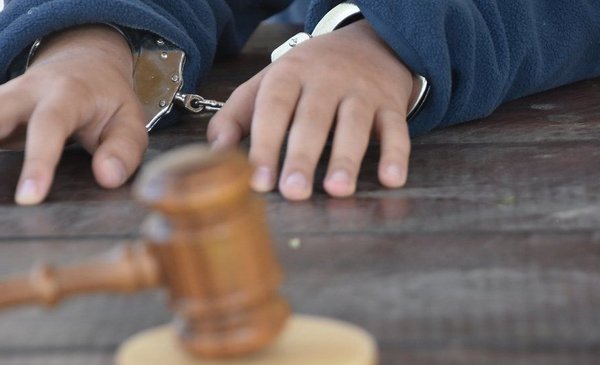Julieta was 14 years old and had gone to live with Mario, who was 48. She knew him from the neighborhood, they were practically neighbors. He had helped his family after the house had been damaged by a storm. It was not the first time that she had left her house to be with Mario, but on February 13, 2019, her mother, together with an INAU psychologist, filed a complaint with the Police.
Five days later, the legal judge Gabriela Azquiroz charged Mario with a crime of forced or servile concubinage, facilitation of especially aggravated drug use and contempt. Two years later, on March 10, 2021, he was sentenced for the same crimes to four years in prison through an abbreviated trial. The sentence would be served after he served his sentence for crimes related to drug trafficking. It is the only record that the Prosecutor’s Office has of a crime of forced marriage or servile concubinage since the creation of the institution to date.
When her mother made the complaint in 2019, Julieta had been away from home for several weeks. She was found in a raid on Mario’s house ordered by the Justice. There they found her sleeping with him.
During the time that the concubinage with the minor lasted, other types of abuse were verified. On the one hand, her economic one: he bought her goods that she lacked, for example, an Iphone brand cell phone through which he kept her under control. In addition, he supplied her with drugs, taking advantage of the teenager’s addiction.
She came from a history of vulnerability, she had been sexually abused when she was 10 years old by her brother, who suffers from psychiatric problems and is confined. Later, the situation was repeated by a former partner of her mother who ended up charged with the crime of violent indecent assault.
The network of violence marked her in subsequent years, generating “impulsive, aggressive aspects with her environment and with herself” as well as “feelings of guilt and responsibility for the events that occurred,” said the professionals who analyzed her, according to the prosecutor Carlos Motta in his opinion.
Because of everything she experienced, she was emotionally very affected and had to be admitted to a psychiatric clinic before and after living with Mario. Her bond with him arose after she was discharged the first time when conflicts with her mother and grandmother began.
“I had gone to live with him, he never went to my house. I had left my family for him, I had changed it for him”, she declared through the Gesell camera. “He was linked to drug trafficking and had her as her wife,” a source told the cause. The Observer.
Due to his history, Mario was a feared person in the neighborhood and had a “complex temperament”, they reported from the Paysandú Police.
After he was charged, he went several times to see her at the clinic where she was hospitalized, which is why in April of that year measures were imposed to restrict her approach, which he also violated, by sending her messages directly and through from other persons. It was from that that the crime of contempt was added.
During that second hospitalization, she was assisted by a psychologist from INAU and only from that moment on was she able to understand the seriousness of what happened. According to an expert cited by the prosecutor in his report, the incident occurred within the framework of a relationship that “begins with understanding, then escalates to a request for sexual favors, exchange of food, or staying in place” and complements: “It is what many call ‘entrapment’ that the victims feel”.
The names used in the story are fictitious.
“It is not fixed with therapy”
Child psychiatrist Natalia Trenchi explained to The Observer that in cases like this, “corrective experiences” should be implemented so that the victim “can load the programs correctly again.” “What she has learned about what life is, the place she occupies, is surely all wrong and that cannot be fixed with therapy. He is not going to hurt, but there must also be other things, “she said.
His colleague Irene García agreed that “multimodal treatments” are required for this type of situation. “There is a lack of social workers, state, family and individual support. With an isolated job, the jobs are not going to be reproduced”, she valued.
At the same time, he stressed that the structures in these cases are too entrenched. “What is right and what is wrong has to do with family stereotypes. They are deep aspects of the personality that are shaped throughout the first years of life and when they are not well incorporated it is difficult, because it is something very deep”, she indicated.
Trenchi pointed out that in these cases “a tailored suit” is needed since “the consequences of repeated and chronic abuse are much more than emotional, they produce alterations at the level of the conformation of the brain. The situation is one of constant stress.”
On this, García insisted on a comprehensive approach to recovery because “many times the resources are insufficient to process the trauma, which results in the repetition of the traumatic.”
In addition, he argued that there are certain characteristics that can increase vulnerability, such as low intellectual level or diminished cognitive abilities.






